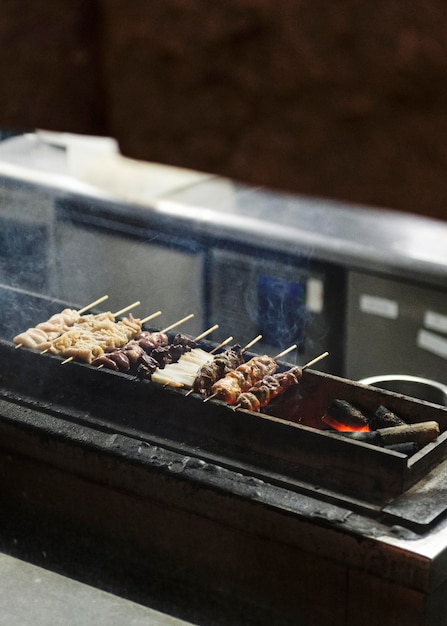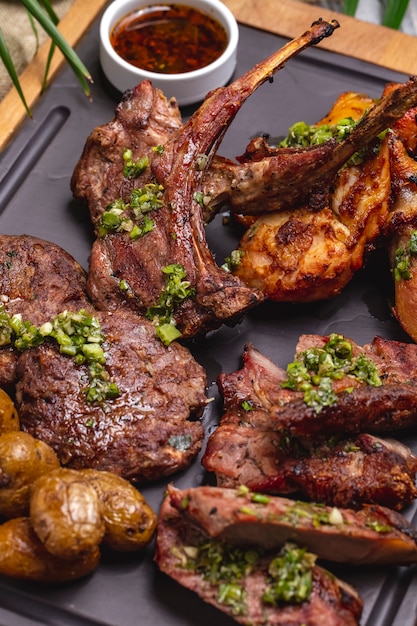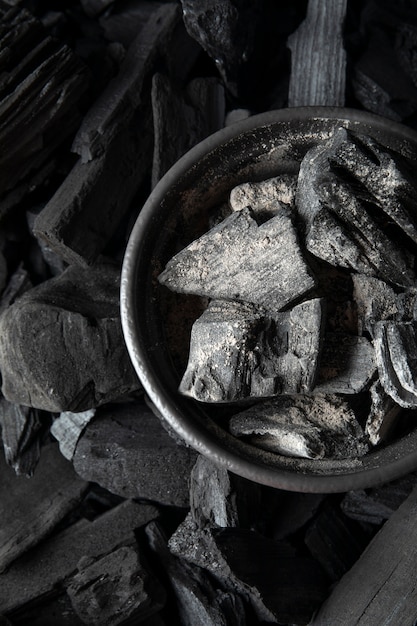What is the hardest thing to BBQ?
Barbecuing is a beloved culinary tradition in the UK, particularly during the summer months when people gather in their gardens or local parks to savor delicious grilled food. While some BBQ dishes are relatively easy to master, there are certain items that pose more of a challenge. From delicate seafood to complex cuts of meat, the difficulty level can vary greatly depending on the ingredients and cooking techniques involved. In this article, we will explore some of the hardest things to BBQ and why they require extra skill and attention.
Delicate Seafood
Grilling seafood can be a tricky task, as delicate fish and shellfish require careful handling to prevent them from drying out or falling apart on the grill. One of the most challenging seafood items to BBQ is whole fish. The skin tends to stick to the grates, making flipping the fish without it breaking a real challenge. Additionally, seafood cooks quickly, so there is a fine line between perfectly cooked and overcooked.
Complex Cuts of Meat
When it comes to BBQ, not all cuts of meat are created equal. Some cuts require additional preparation, marinating, or even smoking to achieve the desired tenderness and flavor. For example, beef brisket is notoriously difficult to BBQ due to its tough texture. It requires low and slow cooking for several hours to break down the collagen and create that melt-in-your-mouth experience. Achieving the perfect balance of smoky flavor, tender meat, and a caramelized crust can be a true test of a BBQ enthusiast’s skills.
Beyond Burgers and Sausages
While burgers and sausages may be the go-to BBQ staples for many, venturing beyond these classics can be a bit more challenging. Cooking more adventurous cuts of meat, such as lamb racks or pork belly, requires careful attention to temperature control and cooking times. These cuts often have uneven thickness or contain different types of meat that require various cooking techniques to ensure even doneness throughout.
Vegetarian and Vegan Options
As the popularity of plant-based diets grows, so does the demand for vegetarian and vegan BBQ options. Grilling vegetables can be relatively simple, but creating flavorful and satisfying plant-based dishes that rival their meat counterparts can be a real test of skill. From marinated tofu skewers to homemade veggie burgers, finding the perfect balance of flavors and textures is key to impressing vegetarian and vegan guests at a BBQ gathering.
“Barbecuing is not just about cooking food; it’s an art that requires passion, patience, and the willingness to experiment with different ingredients and techniques.” – BBQ expert
What is the easiest meat to BBQ?
Introduction
Barbecuing is a popular cooking method, especially in the UK during the summer months. While many people enjoy barbecuing, not everyone has the time or expertise to cook more complex cuts of meat on the grill. If you’re new to barbecuing or simply looking for an easy option, there are several meats that are great choices for beginners.
Chicken
Chicken is a versatile and forgiving meat to barbecue, making it an excellent choice for beginners. Whether you opt for boneless, skinless chicken breasts or whole chicken pieces, they are relatively quick to cook and less prone to drying out compared to other meats. Marinating the chicken beforehand can add flavor and helps tenderize the meat. Additionally, chicken pairs well with a variety of seasonings and sauces, allowing you to experiment with different flavor profiles.
Sausages
Sausages are a British barbecue staple and are incredibly easy to cook. They are typically pre-seasoned and require minimal preparation, making them a convenient choice. Sausages also cook quickly and evenly, so you can have a tasty meal ready in no time. Whether you prefer traditional pork sausages, spicy chorizo, or vegetarian options, there’s a sausage to suit everyone’s taste.
Steak Burgers
If you’re craving a juicy burger but want something easy to cook on the barbecue, steak burgers are a great choice. They are made from ground steak, which means they are packed with flavor and tend to be more tender compared to regular beef burgers. Simply season them with salt and pepper, cook to your desired level of doneness, and serve on a bun with your favorite toppings.
Why is my BBQ steak tough?
There’s nothing worse than eagerly anticipating a deliciously tender BBQ steak, only to be disappointed by a tough and chewy piece of meat. But fear not, there are several reasons why your steak might turn out less tender than desired. Let’s explore some common causes and how to prevent them.
Inadequate marination or seasoning
Marinating your steak can help tenderize the meat by breaking down the muscle fibers. Without proper marination, your steak may lack flavor and tenderness. Be sure to marinate your steak for at least 30 minutes, or even overnight, in a mixture of acid (like vinegar or citrus juice) and flavorful seasonings (such as garlic, herbs, and spices).
Overcooking
Overcooking is a common mistake that leads to tough steaks. The longer you cook your steak, the more its proteins shrink and become tougher. To avoid this, use a meat thermometer to ensure your steak is cooked to the desired level of doneness. For medium-rare, remove the steak from the grill when it reaches an internal temperature of 135°F (57°C).
Poor quality or incorrect cut
The quality and cut of the meat can greatly affect its tenderness. Look for well-marbled cuts, which have visible streaks of fat running through them. These fats melt during cooking, resulting in a juicier and more tender steak. Opt for cuts like ribeye, sirloin, or tenderloin for best results.
Lack of resting time
Resting your steak after cooking allows the juices to redistribute, resulting in a more tender and flavorful bite. If you cut into your steak immediately after grilling, the juices will escape, leaving you with a drier and tougher texture. Let your steak rest for about 5-10 minutes under a foil tent before serving.
By addressing these factors, you can greatly improve the tenderness of your BBQ steak. Remember to marinate your steak, cook it to the correct temperature, choose quality cuts, and give it ample resting time. With these tips, you’ll be well on your way to enjoying a perfectly juicy and tender steak every time.
Why do people spray water on meat on the grill?
Grilling is a popular cooking method in the UK, especially during the summer months when barbecues are a common sight. One technique that you may have noticed some grill enthusiasts using is spraying water on the meat while it cooks. This seemingly counterintuitive practice actually has a few benefits that can enhance the flavor and tenderness of the grilled meat.
Preventing Dryness
Spraying water on the meat helps to prevent dryness during the grilling process. As the heat from the grill penetrates the meat, the water evaporates, creating steam. This steam keeps the meat moist and prevents it from drying out, resulting in juicier and more flavorful cuts.
Controlling Flare-Ups
Another reason why people spray water on their meat is to control flare-ups on the grill. When fat drips onto the hot coals or flames, it can cause sudden bursts of fire, which can char the meat and give it a burnt taste. Spraying water can help to tame these flare-ups and prevent the meat from being overcooked or burned.
Enhancing Smoke Flavor
Water-spraying on the grill can also enhance the smoky flavor in the meat. As the water hits the hot grill, it creates steam and vapor, which can carry the smoke particles from the burning charcoal or wood chips back onto the meat. This can add an extra layer of smokiness to the flavor profile of the grilled meat.
It’s important to note that the quantity and frequency of water spraying will vary depending on personal preference and the type of meat being cooked. For delicate cuts like fish or chicken, a light misting may be sufficient, while thicker cuts like steaks or pork chops may benefit from more frequent spraying.
“Spraying water on the meat while grilling can result in juicier and more flavorful cuts by preventing dryness and controlling flare-ups.”
If you’re interested in trying this technique yourself, here’s a simple guide on how to spray water on meat while grilling:
- Preheat your grill to the desired temperature.
- Ensure you have a spray bottle filled with clean water within reach.
- Place the meat on the grill and start cooking according to your preferred method.
- Once the meat is cooking, periodically spray a fine mist of water over the meat’s surface.
- Continue cooking the meat until it reaches the desired doneness.
- Allow the meat to rest before serving to ensure maximum juiciness.
Next time you fire up the grill, consider giving this water-spraying technique a try. You may be pleasantly surprised by the results!
What Do You Spray on Meat When BBQ?
The Importance of Spraying Meat During BBQ
When it comes to barbecuing meat, spraying is a technique that can significantly enhance the flavors and moisture level of the final dish. It involves applying a liquid mixture to the meat while it cooks over an open flame or hot coals. This process helps create a delicious crust on the outside of the meat while keeping it juicy and tender on the inside.
Common Ingredients for Meat Sprays
There are several popular ingredients used in meat sprays that add unique flavors and help maintain moisture during the cooking process. One well-known option is a simple mixture of apple cider vinegar, water, and Worcestershire sauce. This combination provides a tangy and flavorful coating to the meat as it grills. Another popular choice is a blend of olive oil, garlic, and herbs which imparts a wonderful aroma and taste.
Recipes for Meat Sprays
Here are two simple recipes for meat sprays:
1. Tangy Apple Cider Vinegar Spray:
– 1 cup apple cider vinegar
– 1 cup water
– 2 tablespoons Worcestershire sauce
Mix all the ingredients together and transfer to a spray bottle.2. Herbed Olive Oil Spray:
– ½ cup olive oil
– 2 cloves garlic, minced
– 1 tablespoon chopped fresh herbs (such as rosemary, thyme, or parsley)
Combine the olive oil, minced garlic, and chopped fresh herbs in a small bowl. Let it sit for 30 minutes to allow the flavors to infuse, then strain it into a spray bottle.
Tips for Using Meat Sprays
To make the most of your meat sprays, consider the following tips and tricks:
- Apply the spray evenly throughout the cooking process to ensure a consistent flavor profile.
- Avoid oversaturating the meat as it can lead to flare-ups or a greasy texture.
- Experiment with different combinations of herbs, spices, and liquids to find your favorite flavor combinations.
- Remember to keep safety in mind when using a spray bottle near an open flame or hot coals.
Final Thoughts
Using a meat spray during barbecuing can truly take your grilled dishes to the next level. Whether you prefer a tangy apple cider vinegar spray or a fragrant herbed olive oil spray, the possibilities for enhancing your BBQ experience are endless. So, don’t hesitate to get creative and explore new flavors by incorporating meat sprays into your grilling routine.
How do you season meat before BBQ?
When it comes to barbecuing, one of the keys to a delicious and flavorful meal is proper seasoning of the meat. Whether you’re grilling steak, chicken, or ribs, the right combination of seasonings can take your BBQ to the next level. Here are some tips and tricks for seasoning meat before your next barbecue:
1. Choose the right seasoning
Before seasoning your meat, consider the flavors you want to enhance. For a classic barbecue taste, a dry rub consisting of salt, pepper, garlic powder, paprika, and brown sugar can work wonders. If you’re looking for something more adventurous, experiment with different herbs and spices such as cumin, chili powder, or thyme.
2. Apply the seasoning
Once you have your seasoning ready, generously coat the meat on all sides. Make sure to pat the seasoning onto the surface to ensure it adheres well. For larger cuts of meat, like brisket or pork shoulder, you might want to apply the seasoning the night before and let it sit in the fridge overnight to allow the flavors to penetrate.
3. Let it rest
After applying the seasoning, it’s essential to let the meat rest at room temperature for about 30 minutes before grilling. This allows the flavors to meld together and helps the meat cook more evenly.
4. BBQ techniques
The method you employ for barbecuing also affects the flavor of the meat. Whether you’re using a gas grill or charcoal, low and slow cooking is key for tender and juicy results. Keep an eye on the temperature and use a meat thermometer to ensure the meat is cooked thoroughly.
Proper seasoning is the foundation of a great barbecue. It adds depth and complexity to the meat, resulting in a memorable dining experience.
Remember, flavor is subjective, so don’t be afraid to experiment with different seasonings and techniques to find your perfect BBQ combination. Happy grilling!
Conclusion
When it comes to the easiest meat to barbecue, chicken, sausages, and steak burgers are top choices for beginners. These meats require minimal preparation, cook relatively quickly, and are forgiving when it comes to cooking times. Whether you’re hosting a barbecue party or simply enjoying a casual outdoor meal, these meats will ensure a flavorful and enjoyable experience for everyone.



